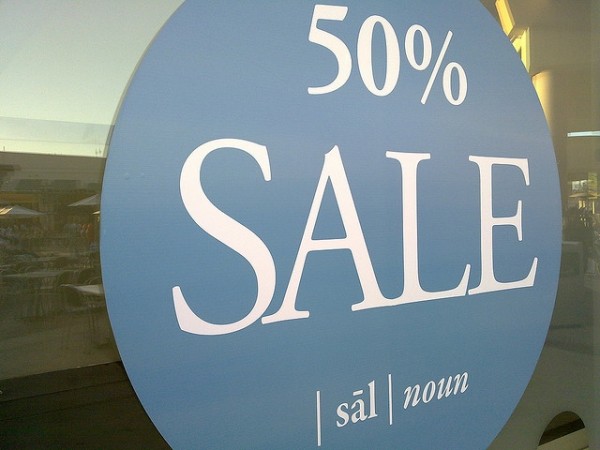
WTF? You can preorder Black Friday gadget deals
Cough. Choke. Collapse. That's me nearly needing the Heimlich maneuver during breakfast while looking over Samsung Black Friday deals. You can preorder them. Seriously. What the frak is that?
The routine started all so innocently. Samsung sent a promo email, and I curiously clicked the picture of a Chromebook and "Reserve Computing Deals". The webpage screenshot says all you need to know. You can, today -- as in right this very minute -- preorder either Samsung Chromebook 2 for assured savings ($20 or $50) between November 27 and December 1 for one and until the 27th for the other. I understand that Black Friday is late-month this year, but, c`mon, beat me with a sack of cash, sales preorders?
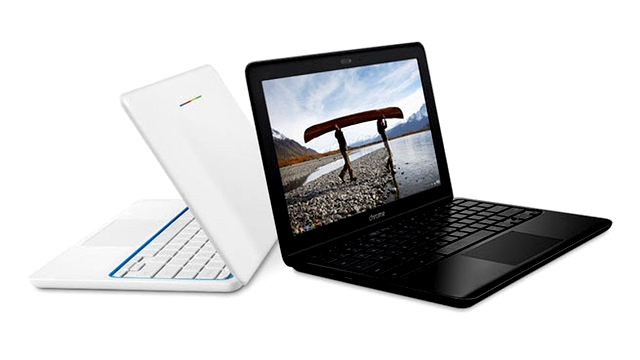
Chromebook shipments rise 67 percent this quarter
Chromebooks continue to shine in terms of growth according to the latest figures from ABI Research, with the notebooks up 67 percent quarter-on-quarter in terms of shipment levels.
And indeed ABI forecasts that Google's cloudy laptops will double in quantity when it comes to year-on-year.
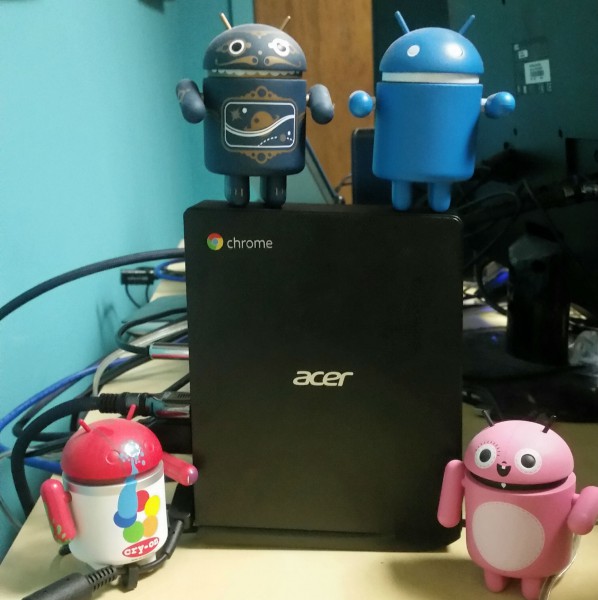
Acer Chromebox CXI -- small package, largely satisfying [Review]
Everybody has different needs, so it is impossible to say one operating system is better than another. Sure, you can state which OS is best for you, but someone else may have a difference in opinion. In other words, whether you think Windows, OS X, Chrome OS or any Linux distro is the best operating system, you are right.
While I prefer Windows for heavy lifting, I use my Chromebook regularly for light use, such as writing, and trips to Starbucks. Unfortunately, Chrome OS has become synonymous with low-cost and portability, causing people to discount it for home desktop use. Actually, there is a segment of Chrome devices called Chromeboxes that are designed for the desktop and can excel at many things. Today, I am looking at the Acer Chromebox CXI (4GKM) to see how it performs as a home desktop PC.
Google sets sights on Apple and Microsoft -- brings Adobe Photoshop to Chromebooks
Google is trying to grow its budding operating system platform, continually updating and enhancing features. Customers can now work in certain environments offline, for instance. But what lacked was some of the core features of rivals Windows and OS X. However, that slowly changes as well.
Photo editing, for instance, was one feature that, while not absent, certainly wasn't top of the line. Until now you had to rely on an app such as Pixlr, which many Chromebook customers use. But Google today announces that Photoshop is arriving, though not (at least yet) offline.

Pricey Macs and cheap Chromebooks squeeze Windows in the middle
No one likes to be in the middle seat on airplanes, right? It's a metaphor appropriate for retail -- and the place where Windows sits in NPD's final assessment of U.S. 2014 back-to-school sales growth. Chromebook continued a nearly two-year unit-sales surge, while Macs made last-minute gains, and Windows PCs survived only by aggressive tactics that pulled down average selling prices. For Microsoft and its partners, the strategy cut market share losses but at great hidden costs.
Back-to-school 2013 was a bloodbath, with unit sales through U.S. channels dropping by 2.5 percent annually -- a loss that pulled down overall PC sales during first half of last year. For 2014, sales are up about 3 percent overall, or 3.5 percent for notebooks and flat for desktops.
Chromebook is nothing without Android apps
Google geeks have speculated for nearly a year about Android and Chrome OS coming together as one operating system. Yesterday's announcement -- that some Android apps can now run on the browser-based platform -- seems to foreshadow a combined future. Make no mistake about what this really means. Chrome OS is an ecosystem with no future because there is little monetization of apps. The platform would be dead if not for the existing and smoothly integrated Google cloud ecosystem.
Android apps inject life into the Chrome OS ecosystem. Free apps can't sustain any platform because developers have no incentive to create them. Android opens a huge spigot of apps -- and some which developers can monetize, more than they do through paid services tacked onto free web apps. BTW, Microsoft should take a cue from Google, by bringing boatloads of Windows Phone apps to its PC operating system.
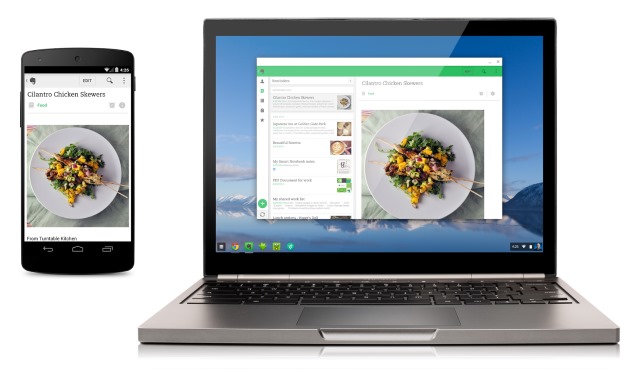
Android apps break out of the small screen and jump to Chromebooks
A lot of Google services have transitioned to gain the title of "apps", and the same is true of a large number of extensions for the Chrome browser. These online tools are essentially cross-platforms apps that work identically Now Google is taking another step to break out of the confines of making apps available to a single platform. Android apps are, quite rightly, associated with smartphones and tablets, but now a small number of these mobile apps are finding their way onto Chromebook.
The (usually) cheap and cheerful Windows laptop/Mac Book alternative (did someone say netbook?) can now start to benefit from a handful of well-known titles from Android devices. It is very early days but as of today there are four Android apps available to Chromebook owners -- Duolingo, Evernote, Sight Words, and Vine -- but we can expect to see this list expand over time. The quartet of crossover apps were introduced today by Ken Mixter and Josh Woodward. A short blog posts penned by the pair explains that the Chromebook support comes thanks to the App Runtime for Chrome (Beta) project.
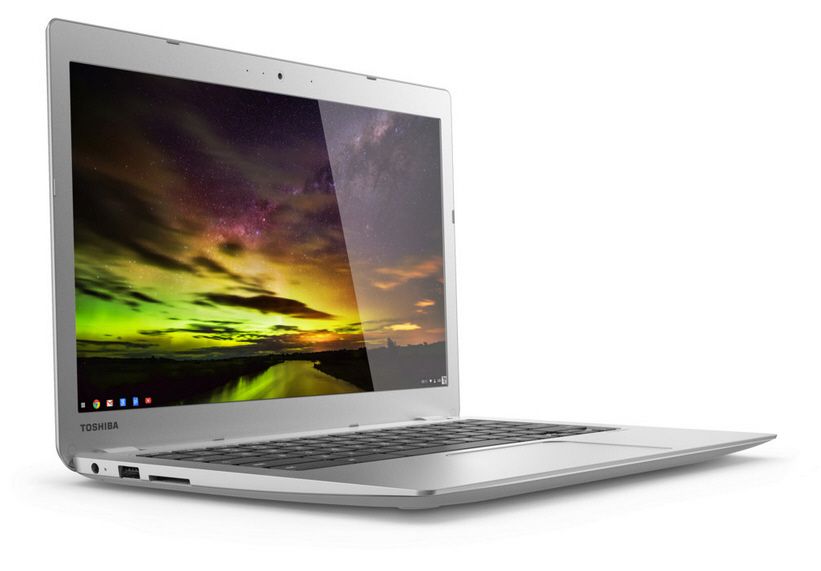
Toshiba's new Chromebook 2 offers a Skullcandy branded audio experience
Toshiba USA has taken the wraps off its second generation Chromebook. Chromebook 2 will sport a 13.3-inch screen in a compact 12-inch chassis and be available in two versions. The entry model boasts a standard HD display, while the premium edition offers Full HD (1920 x 1080) with IPS (In-plane switching) technology.
Both models feature Skullcandy tuned sound systems with "strategically placed" front-facing stereo speakers.
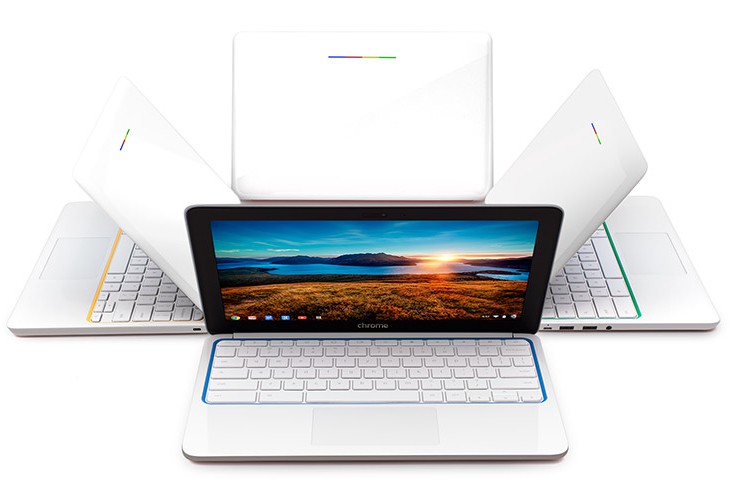
Goodbye Windows, I'm sticking with Chrome OS
Earlier this summer I wrote about moving to a Chromebook -- I'm working from my porch and I want something easily portable. I stated at the time that I was not sure where things would lead when the weather took a turn for the cooler. In previous years I've used a Windows 8.x (or 7) computer, as my office contains two desktops and a laptop running the Microsoft operating system as well.
Don't get me wrong -- I still see a need for the platform, but I simply don't see it for myself. I write in Word, which has a Chrome app. I edit images, which Pixlr handles quite well. Beyond that, I do little else outside of checking email and scouring the web for news.

Google, Nvidia and VMware team up to bring graphics-intensive apps to Chromebooks
VMware, Google and Nvidia are all teaming up in a scheme which will allow high-end graphics intensive applications to be used on a lowly Chromebook.
How will that work? Obviously a Chromebook doesn't have the horsepower to run heavyweight programs such as, say, Photoshop or AutoCAD, but the laptop won't be running it in this case. The software will run in the cloud, on powerful machines in data centers, and be streamed to the notebook.
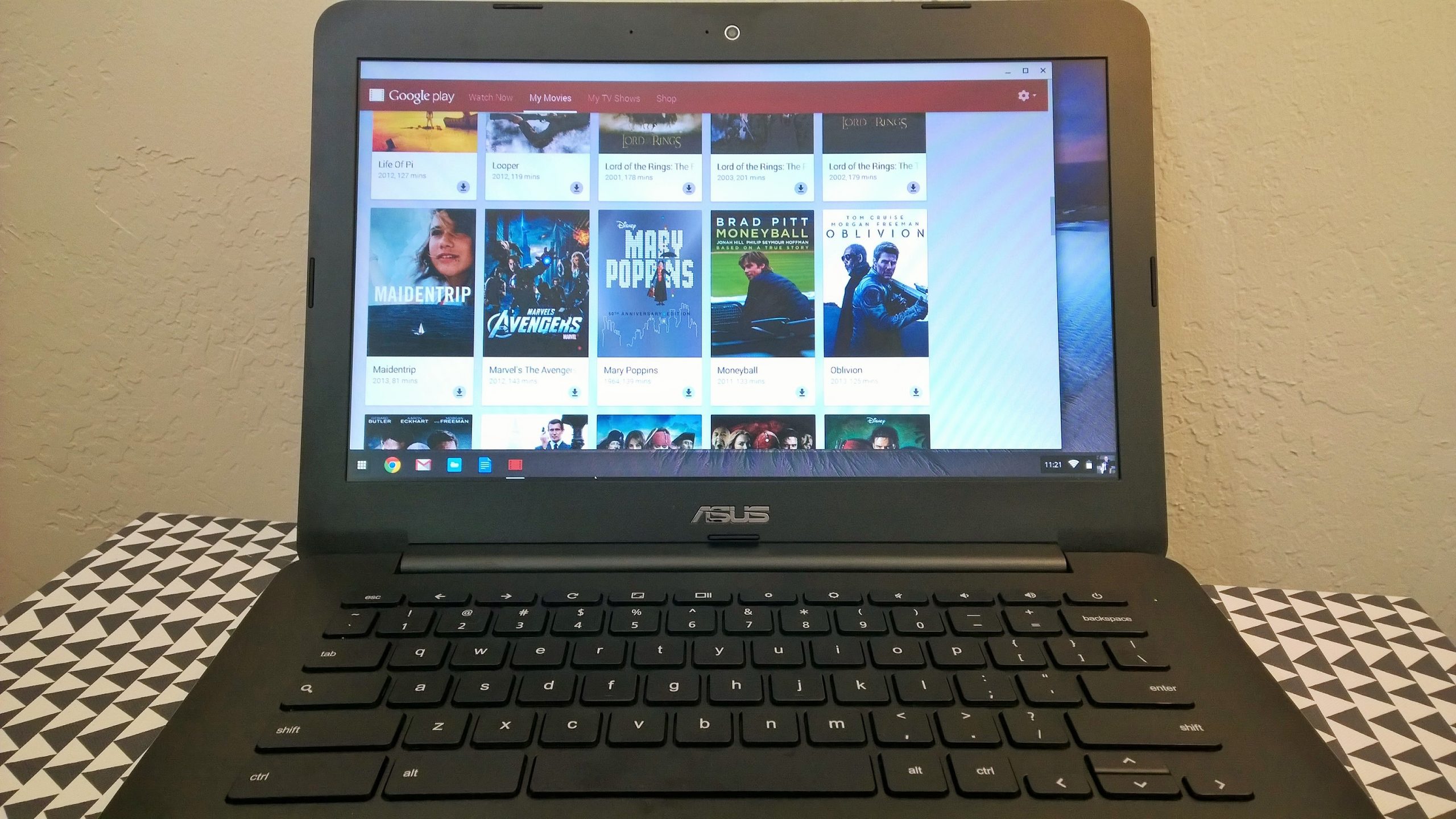
ASUS C300 Chromebook Review
This summer, I took a break from Chromebook, to conduct an experiment going "Microsoft All-In". After using the browser-based concept for about two years, I even gave up Google products and services for awhile. What terrible timing! There's a sudden shift in the winds, as Chromebook heads away from x86 and towards destination ARM and competing Intel processor Bay Trail. These lower-power consumption, lower-heat producing chips also illuminate new Chromebook form-factors: 13.3-inch displays. The first of these -- from Acer, ASUS, and Samsung -- started shipping in June, July, and August. I tested the ASUS C300.
Like the other two manufacturers, ASUS offers Chromebooks with 11.6-inch and 13.3-inch screens. I review the larger laptop. Both compete with the ARMs by adopting Intel’s Bay Trail processor, which offers similar benefits and performance pitfalls. There's nothing exceptional about the C300, which strangely is a benefit. The laptop's attributes are quite balanced -- design, performance, and price.

Run Windows software on Google's Chromebooks with Citrix Receiver for Chrome
Chromebooks are amazing computers. Part of the genius of Google's Chrome OS is its lack of freedom; a seemingly crazy statement, I know. You see, users cannot install software locally, which in turn, also blocks viruses and malware. In other words, limitations become a strength from a security standpoint. However, sometimes the limitations of the OS are not a positive, but a negative.
For business users in particular, using Chrome web apps exclusively is a non-starter. Sure, some small business users can get by, but many large companies rely on specialized software -- mostly for Windows. Today, Windows programs come to Chromebooks -- sort of. Google announces that Citrix Receiver is coming to Chrome OS. Will this massively disrupt the business market?

Acer announces the Chromebox CXI -- a slim and sexy Google-powered mini-desktop
When it comes to Chrome OS, the Chromebook reigns supreme. In fact, Google's operating system is viewed by many consumers as a laptop-only affair. However, the Chromebox has existed for quite some time now; it just has not caught on with consumers as much as the portable versions. The mini desktop form factor always feels like an afterthought when discussing Google's operating system.
It is understandable for people to pass on the Chromebox. You see, a Chromebook with HDMI or DisplayPort can also function as a desktop when connected to a large monitor, keyboard and mouse. In other words, why would a consumer or business user tether themselves to a desk rather than having the option to go portable? There are many reasons; business users may have requirements that a computer does not leave a location. For home consumers, one of the most important reasons is style and design. A Chromebox takes up little room on a desk and looks attractive; more than a laptop with a mess of wires. Today, Acer drives this point home by announcing the Chromebox CXI series -- super-slim, sexy and very functional.
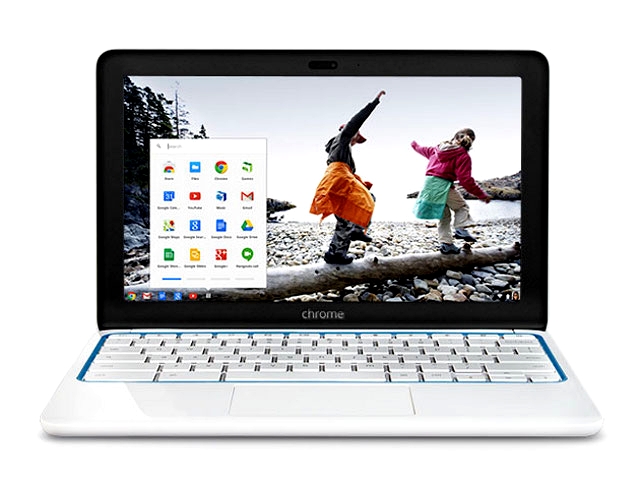
Chromebook on the rise, with sales set to triple by 2017
Google's Chromebook is on the up and up, according to the latest report published by analyst firm Gartner.
This year, Gartner estimates that total Chromebook sales will hit 5.2 million, which is up 79 percent from 2013. Looking further out to 2017, the number of units sold should reach 14.4 million, in other words we're looking at a near tripling of sales inside three years. Which has to be music to Google's ears...

Acer announces Chromebook 13 -- world's first Chrome OS laptop with Nvidia Tegra K1
The concept of a Chromebook is awesome. All of your files are stored in the cloud -- family photos, office documents and videos to name a few. This opens up an entire new way of thinking, where nothing seems impossible. Hell, even most of the apps are web-based and that is enough to blow someone's mind. Since local apps cannot be installed, this makes Chrome OS extremely secure and an ideal platform for accessing sensitive information.
Unfortunately, as great as the operating system is, the hardware has been lacking. Most models require the user to make a compromise for the sake of cost. Poor quality screens, not enough RAM and questionable build quality are the issues that are most apparent. For some reason, manufacturers equate Chromebooks with "cheap" and this is not the case. People really do want a midrange Chromebook and not just throwaway, disposable tech. Today, Acer announces a Chromebook that may be the one we have been wishing for (fingers crossed); the unimaginatively named Chromebook 13. It is the first-ever Chrome OS laptop to have the Nvidia Tegra K1 ARM processor.
